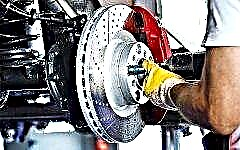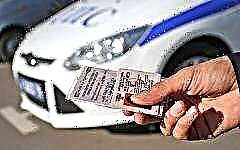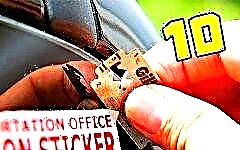

The content of the article:
- In what situations is the imposed penalty appealed?
- What to do in case of guilt
- When, where and how to file a complaint
In what situations is the imposed penalty appealed?

The conviction that "it is useless to fight the organs" has lost its relevance in recent years, at least in relation to minor (and not only) motor offenses. Mistakes are made more and more often, cameras on the roads record inaccurate data, traffic police officers may be biased. And you have to challenge your own innocence. Sometimes even in court. But in most cases it is enough to send a corresponding statement to the traffic police.
The main reasons to challenge the punishment are:
- The composition of the violation has not been proven by anything, and the decision has no basis.
- The circumstances indicated in the decision on violation do not correspond to the real state of affairs.
- The offense is misinterpreted.
- When making the decision, the arguments of the accused in his defense were not taken into account.
There are several of the most common reasons for unjustified fines:
- In the picture, the number of the car is incorrectly identified, and the checking operator looked at this discrepancy.
- Another person was driving at the time of the violation.
- The car was parked in the wrong place for a good reason. For example, at the request of a police officer.
- The fact of payment for parking was not recorded for some reason.
- The car was sold, but the new owner did not renew the documents.
- The camera recorded your car and the speed of a motorcycle or other vehicle passing by at that moment at high speed.
All these misunderstandings can make a diligent motorist an offender, if you do not challenge the conclusion of a judicial authority or a traffic police officer in time.
Proof of your innocence must be attached to the request for a reconsideration of the case. It can be:
- testimony of witnesses;
- a copy of the car purchase and sale document;
- tickets, hotel bills, testimonies or references to colleague witnesses proving that at the time of the illegal actions you were in another place;
- an indication of the presence of a statement of theft or a copy of it; the statement must be drawn up before the violation is recorded.
What to do in case of guilt

If the violation really took place, and the punishment is too harsh, you can try to appeal it, referring to mitigating circumstances. Such claims are not always satisfied, but it is worth a try. In the worst case, everything will remain unchanged.
Mitigating circumstances include:
- confession of guilt by the violator and repentance for the deed;
- reputation of a diligent driver and the fact of committing an offense for the first time;
- termination by the accused of violating legal norms of actions voluntarily;
- voluntary cooperation with authorities;
- compensation for damage on a voluntary basis to victims of the violation;
- compensation or elimination of the consequences of the violation on a voluntary basis;
- being in a state of passion at the time of the offense.
For women, a mitigating circumstance can be the presence of a small child or pregnancy.
When, where and how to file a complaint

You can appeal against a penalty or a decision on deprivation of rights by submitting an application to a higher authority within 10 days from the date of entry into force of the decision. If it is sent by mail, then within 10 days from the date of receipt.
If you fail to meet the deadline, you can achieve a delay, but only if there is a good reason - a serious illness, absence due to certain circumstances, etc.
The order on recovery (not to be confused with the protocol) can be issued by the State Traffic Inspectorate or the court. Cases are transferred to the court, in which the arrest of the guilty is provided as a punishment. As well as other serious traffic violations. These include:
- drunk driving;
- driving a vehicle without a driver's license;
- violation of traffic rules, which entailed harm to strangers;
- secondary exit into the oncoming lane;
- secondary violation of the speed limit, etc.
You can appeal the decision of the court by filing a claim with a higher authority.
An employee of the State Traffic Inspectorate has the right to impose penalties for minor violations. In this case, you can challenge the verdict by filing an application either to the court or to the head of the traffic police (or another authorized employee)
How to file a complaint correctly
The appeal document is drawn up according to the standard scheme, like any other application, and consists of 6 parts.
1. Standard hat
Indicate to whom (name of the court / traffic police body) and from whom (name, address, phone number of the applicant) the complaint is being filed.
2. Title of the document
It sounds like this: "A complaint against a decision in a case of an administrative violation."
3. The essence of the document
Should contain two parts. Specify in Part 1:
- what exactly, where and when happened;
- the article on which the decision was made;
- number and date of the resolution;
- surname, first name and patronymic of the judge who imposed the penalty (or the traffic police officer, indicating the position he held).
The second part should indicate:
- what exactly you do not agree with the established penalty;
- arguments in favor of their position and the need to reconsider the case;
- references to legal regulations that confirm the legitimacy of your position (you should first consult with a lawyer).
4. Resolution
Indicate exactly what you want (to overturn the order, dismiss the case, or reconsider the case and commute the sentence).
5. Addition
6. Date of writing and signature of the originator of the document
Where is it better to file a complaint, to the court or the traffic police

If everything is clear with the court decision and it can only be challenged in a higher instance, then when you receive a notification of collection from the traffic police, you have the opportunity to choose.
If you are sure of your innocence and you have evidence, then you can send a complaint to the head of the traffic police. But do not discount the bias of such proceedings. If in doubt about a fair review, it is best to take the case to court.
During the proceedings in court, the data of the initial opinion are not taken into account. That is, the clarification of the circumstances begins in a new way, thus excluding the influence of the "enemy" on the issuance of a new verdict.
But often you don't need to complicate things that much. For example, an erroneous fine from cameras can be challenged without leaving your home. It is enough just to go to the official website of the traffic police and in a certain section fill out the application form, indicating the error of the collection and giving reasons in your favor.
If the traffic police ignored or rejected your complaint, and you are confident that you are right, then you should file a lawsuit. 60 days are allocated for the consideration of the case in court.
Conclusion
Of course, some fines are easier to pay than waste time refuting. But we should not forget that every violation, real or fictitious, takes place. And in case of a serious violation or an accident, it will do the driver a disservice. After all, a second violation is not the first; this plays an important role in the imposition of punishment.











